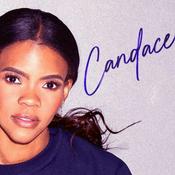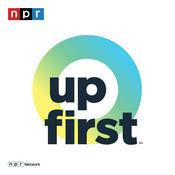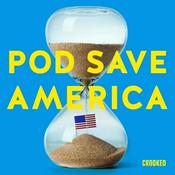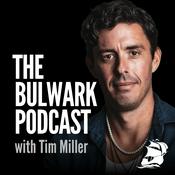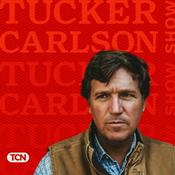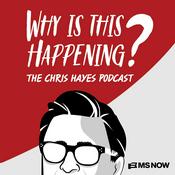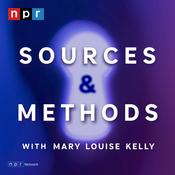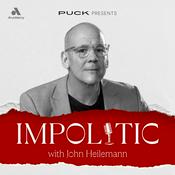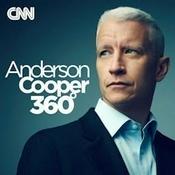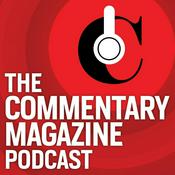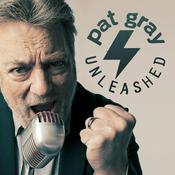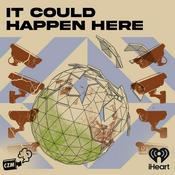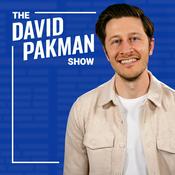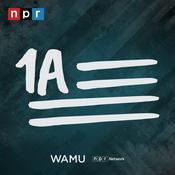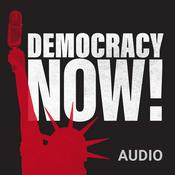Available Episodes
5 of 12
- A River For The FutureAcross the U.S.-Mexico border, the Colorado River once flowed freely into the ocean. When the freshwater and saltwater met, it created an explosion of life in the desert. But most of that lushness dried up when people used up the river. We meet people who have worked for decades to restore parts of the delta's lost wetlands. They created a historic agreement between the two countries that designates some river water for the environment. That means that sometimes, this dry delta flows with water again, and occasionally, the river meets the ocean. The final installment in our 10-part series. For more CPR News coverage of the Colorado River, visit cpr.org/parched. Host: Michael Elizabeth Sakas Written by Michael Elizabeth Sakas Editors: Erin Jones, Joe Wertz Production and Mixing: Emily Williams Additional Production: Erin Jones and Rachel Estabrook In-Country Interpreter: Jesús Galaz Tape Translator: Carlos Aguilar Voiceovers: Jean Inaba and Jessie Jacobs Theme song by Kibwe Cooper. Additional music via Universal Production Music. Artwork: Maria Juliana Pinzón Executive Producers: Kevin Dale, Brad Turner Additional Editorial Support: Kibwe Cooper, Jo Erickson, Rachel Estabrook, Chuck Murphy, Taylar Dawn Stagner, Andrew Villegas, Rebekah Romberg Thanks also to Kevin Beaty, Sarah Bures, Hart Van Denburg, Jodi Gersh, Shawn Lucero, Kim Nguyen, Clara Shelton, Arielle Wilson. Parched is a production of the Climate Solutions team of CPR News and Colorado Public Radio’s Audio Innovations Studio — part of the NPR Network.--------41:27
- Desert Farming, DifferentlyCrops like alfalfa that feed cows are the biggest user of the Colorado River, to satisfy our cravings for nachos and burgers. Cutting back on farms' water use is the biggest way we can live in a drier West. One Indigenous farm manager is trying to do it — to grow food with much less water. His story reveals how to get other farms to be more efficient, too, in part by changing what and how they grow. Part 9 of a 10-part series. For more CPR News coverage of the Colorado River, visit cpr.org/parched. Host: Michael Elizabeth Sakas Written by Michael Elizabeth Sakas Editors: Erin Jones, Joe Wertz Production and Mixing: Emily Williams Theme song by Kibwe Cooper. Additional music via Universal Production Music. Artwork: Maria Juliana Pinzón Executive Producers: Kevin Dale, Brad Turner Additional Editorial Support: Kibwe Cooper, Jo Erickson, Rachel Estabrook, Chuck Murphy, Taylar Dawn Stagner, Andrew Villegas Thanks also to Sarah Bures, Hart Van Denburg, Jodi Gersh, Kim Nguyen, Clara Shelton, Arielle Wilson. Parched is a production of the Climate Solutions team of CPR News and Colorado Public Radio’s Audio Innovations Studio — part of the NPR Network.--------30:48
- Water For PayIf we turned off every tap in every city in the southwest, we still wouldn't solve the Colorado River crisis. That's because 80 percent of the water goes to agriculture — to the lettuce and melons in your produce section, the half-and-half you put in your coffee every morning. Those farmers have some of the preeminent rights to the river. So what if the government paid them to keep their water in the river instead? Part 8 of a 10-part series. For more CPR News coverage of the Colorado River, visit cpr.org/parched. Host: Michael Elizabeth Sakas Written by Michael Elizabeth Sakas Editors: Erin Jones, Joe Wertz Production and Mixing: Emily Williams Theme song by Kibwe Cooper. Additional music via Universal Production Music. Artwork: Maria Juliana Pinzón Executive Producers: Kevin Dale, Brad Turner Additional Editorial Support: Alison Borden, Kibwe Cooper, Jo Erickson, Rachel Estabrook, Luis Antonio Perez, Taylar Dawn Stagner, Andrew Villegas Thanks also to Sarah Bures, Hart Van Denburg, Jodi Gersh, Kim Nguyen, Clara Shelton, Arielle Wilson. Parched is a production of the Climate Solutions team of CPR News and Colorado Public Radio’s Audio Innovations Studio — part of the NPR Network.--------36:04
- The Cost of Cheap WaterWhat we pay for water doesn't reflect how scarce it is with climate change. Could cities get people to use less water by charging more for it? Decades ago, Tucson did this, and it worked. But the political consequences may have scared off other cities. Now, in an increasingly dire situation along the Colorado River, what if a bunch of cities priced water differently, to change our behavior? Part 7 of a 10-part series. For more CPR News coverage of the Colorado River, visited cpr.org/parched. Host: Michael Elizabeth Sakas Written by Rachel Estabrook Editors: Erin Jones, Joe Wertz Production and Mixing: Rebekah Romberg Theme song by Kibwe Cooper. Additional music via Universal Production Music. Artwork: Maria Juliana Pinzón Executive Producers: Kevin Dale, Brad Turner Additional Editorial Support: Alison Borden, Kibwe Cooper, Jo Erickson, Luis Antonio Perez, Taylar Dawn Stagner, Andrew Villegas Thanks also to Sarah Bures, Hart Van Denburg, Jodi Gersh, Kim Nguyen, Clara Shelton, Arielle Wilson. Parched is a production of the Climate Solutions team of CPR News and Colorado Public Radio’s Audio Innovations Studio — part of the NPR Network.--------31:59
- Flush With OpportunityAmericans flush toilets with water that's good enough to drink. We could cut how much water cities need if we reused that water, or flushed without sapping our fresh mountain supplies. From at-home solutions to citywide scale, wastewater reuse and recycling are gaining momentum, and could be on the verge of a breakthrough. Part 6 of a 10-part series. For more CPR News coverage of the Colorado River, visited cpr.org/parched. Host: Michael Elizabeth Sakas Written by Rachel Estabrook Editors: Erin Jones, Joe Wertz Production and Mixing: Rebekah Romberg Theme song by Kibwe Cooper. Additional music via Universal Production Music. Artwork: Maria Juliana Pinzón Executive Producers: Kevin Dale, Brad Turner Additional Editorial Support: Alison Borden, Kibwe Cooper, Jo Erickson, Luis Antonio Perez, Taylar Dawn Stagner, Andrew Villegas Thanks also to Sarah Bures, Hart Van Denburg, Jodi Gersh, Kim Nguyen, Clara Shelton, Arielle Wilson. Parched is a production of the Climate Solutions team of CPR News and Colorado Public Radio’s Audio Innovations Studio — part of the NPR Network.--------33:05
More News podcasts
Trending News podcasts
About Parched
The southwestern United States has been in a drought for more than 20 years. It's created a serious problem for the Colorado River, and tens of millions of people in the region. Parched is a podcast about people who rely on the river that shaped the West – and have ideas to save it. Hosted by Michael Elizabeth Sakas, a climate and environment reporter for CPR News.
Podcast websiteListen to Parched, The Daily and many other podcasts from around the world with the radio.net app
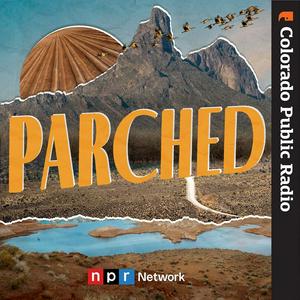
Get the free radio.net app
- Stations and podcasts to bookmark
- Stream via Wi-Fi or Bluetooth
- Supports Carplay & Android Auto
- Many other app features
Get the free radio.net app
- Stations and podcasts to bookmark
- Stream via Wi-Fi or Bluetooth
- Supports Carplay & Android Auto
- Many other app features


Parched
Scan code,
download the app,
start listening.
download the app,
start listening.


